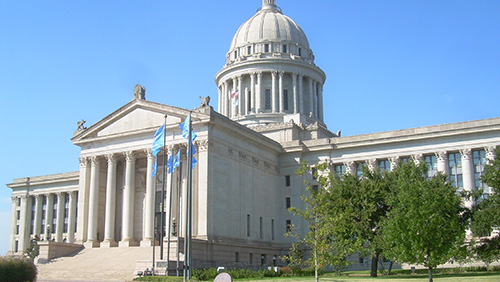Kevin Shift, the governor of Oklahoma, doesn’t believe the Native Indian tribes in the state are playing nicely and feels that they should give up more of their revenue to the state’s wallet. He wants the 35 Oklahoma-based tribes, which operate about 130 casinos in the state, to sit down with lawmakers and hash out details on a new gaming compact that would reduce the tribes’ cut. As anyone would expect, the mere suggestion that the tribes would receive less money didn’t go over well.
 Shift wrote an op-ed piece for the Tulsa World news outlet a few days ago, in which he asserted, “The easiest thing to do is simply renew the existing compacts ‘as is,’ rather than do the hard work of closely reviewing and negotiating new compacts that reflect the state of affairs today. I believe, however, that voters elected me to look at everything in state government with a fresh eye and, where necessary, make the difficult decisions that are in the best interest of all four million Oklahomans.”
Shift wrote an op-ed piece for the Tulsa World news outlet a few days ago, in which he asserted, “The easiest thing to do is simply renew the existing compacts ‘as is,’ rather than do the hard work of closely reviewing and negotiating new compacts that reflect the state of affairs today. I believe, however, that voters elected me to look at everything in state government with a fresh eye and, where necessary, make the difficult decisions that are in the best interest of all four million Oklahomans.”
The first-term governor—and a member of the Cherokee Nation—added, “In this case, that means sitting down with our tribal partners to discuss how to bring these 15-year-old compacts to an agreement that reflects market conditions for the gaming industry seen around the nation today.”
Currently, under the 15-year-old compacts, the tribes provide anywhere from 4-10% of their gross gaming revenue (GGR), depending on the type of gambling, to the state as an “exclusivity fee.” The annual GGR for the groups is about $4.5 billion, the third largest in the country behind California and Nevada.
The tribes were caught off-guard by the public route taken by Shift, but didn’t take long to respond. The chairman of the Quapaw Nation, John Berrey, told the Associated Press, “What I don’t understand, in any of his op-ed, there’s no recognition of the true value of the tribes. Native American tribes are one of the largest employers in the state. We provide benefits for our employees. We’re probably the most philanthropic group in the state.”
When the current compacts expire at the beginning of next year, the government and the tribes will try to work out new details. However, if they can’t come to a mutual understanding, the current outline in the compacts carries forward. If the state government attempts to force the tribes’ hand, Oklahoma could end up like Florida.